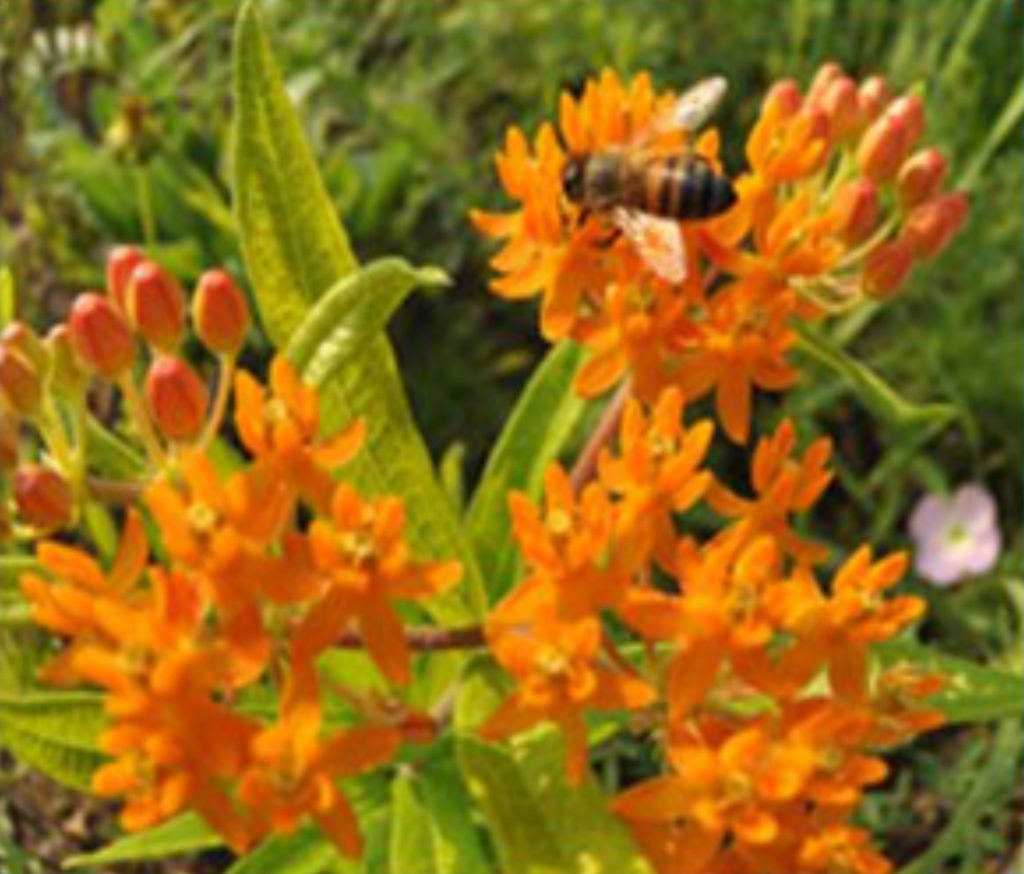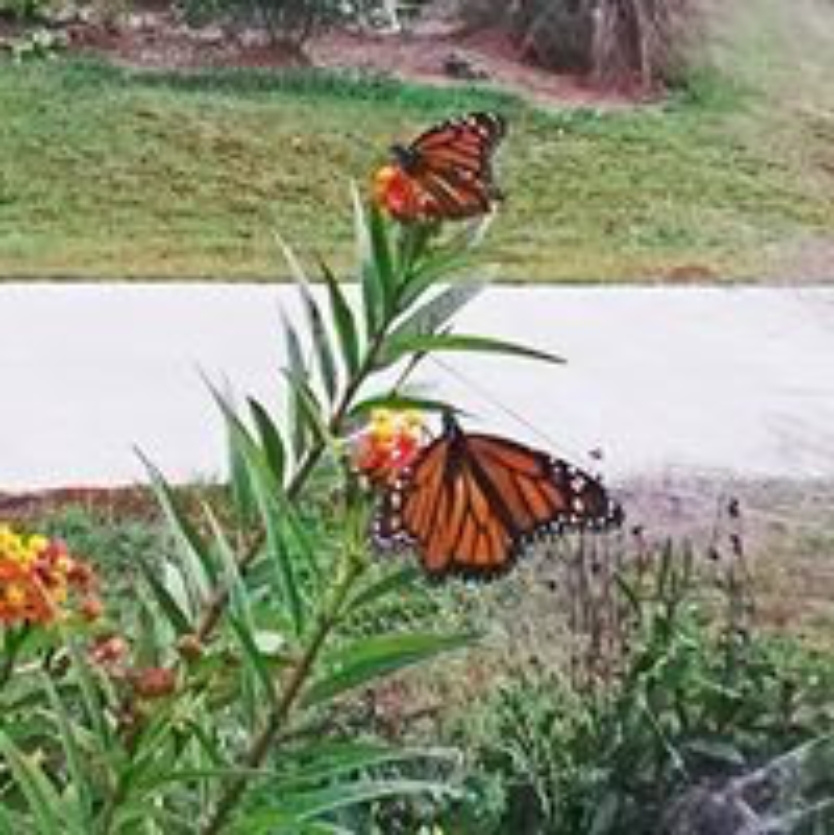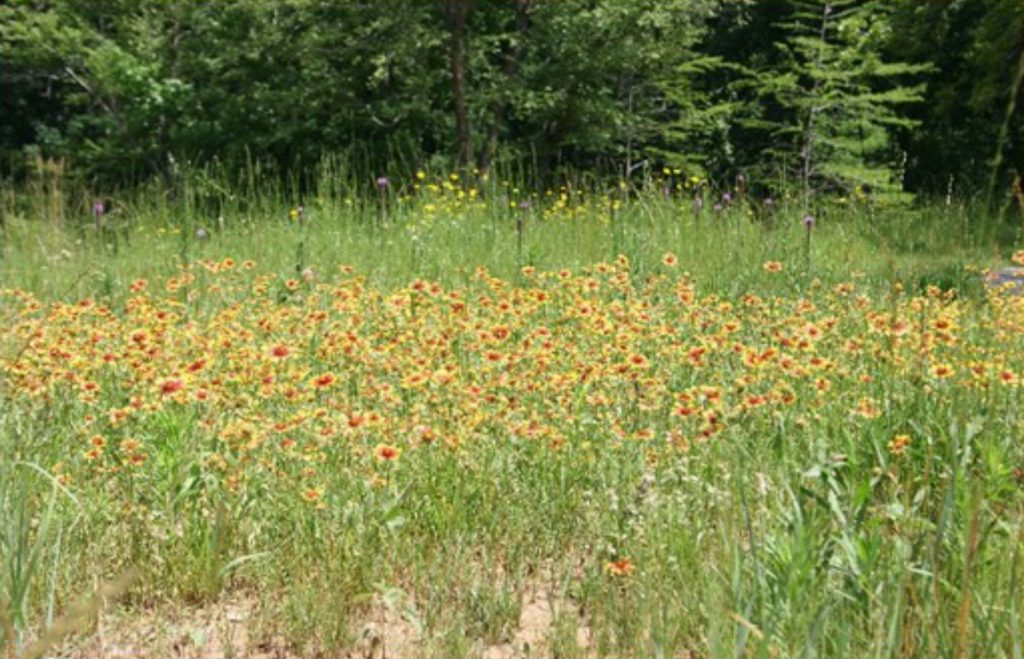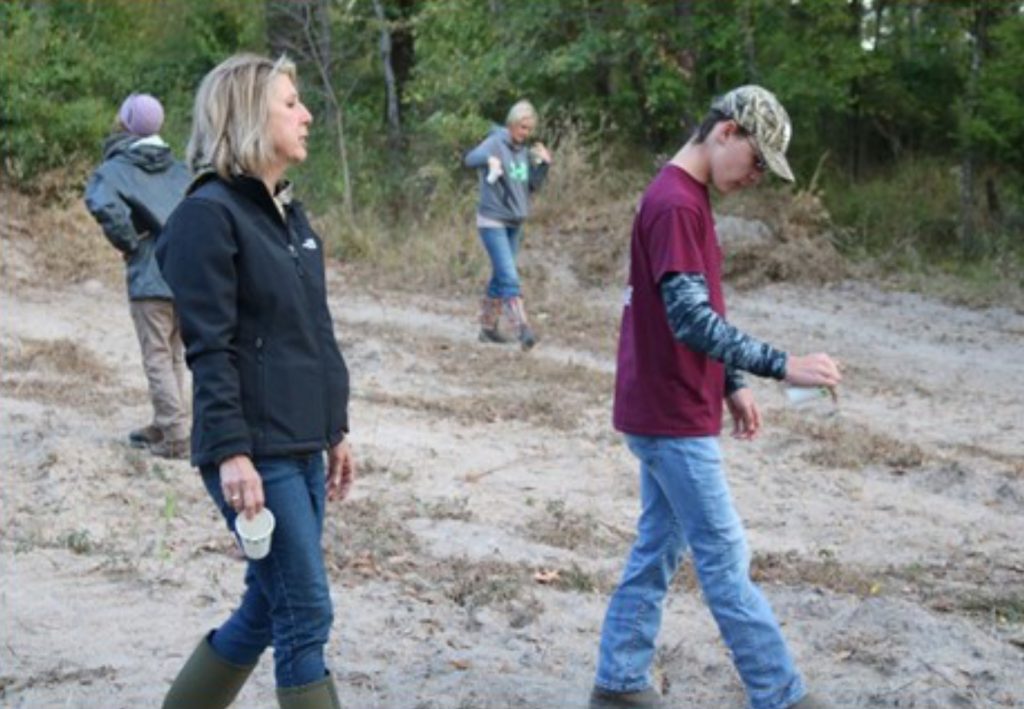 Utilizing funding from the U.S. Fish & Wildlife Service, Collins Academy is expanding its conservation offerings to schools, private and public properties by improving existing and creating new pollinator habitat. Just as wildlife has suffered from increased fragmentation of land through urbanization, so have bees, butterflies, and hummingbirds.
Utilizing funding from the U.S. Fish & Wildlife Service, Collins Academy is expanding its conservation offerings to schools, private and public properties by improving existing and creating new pollinator habitat. Just as wildlife has suffered from increased fragmentation of land through urbanization, so have bees, butterflies, and hummingbirds.
Not long ago beekeepers would ask farmers to set beehives near croplands in exchange for some honey. Now farmers are paying beekeepers to bring in hives for their crops. A third of the U.S. food supply depends on pollinators. According to a Cornell study published in the May 22, 2012 issue of the journal Public Library of Science ONE, crops pollinated by honeybees and other insects contributed $29 billion to farm income in 2010. The value of directly pollinated crops was $16.35 billion, while the value of indirectly dependent crops was $12.65 billion.
 Currently, Collins Academy is working with its Conservation Leadership Teams at schools to pull aggressive exotics that out-compete historic natives and replant with species once common to the area focusing on host plants that must be present for pollinators to complete their life cycles. Milkweeds in general are host plants for the Monarch Butterfly. While butterfly weed, Asclepias tuberosa (pictured above), is most favored by Monarchs passing through Northeast Texas. Academy staff is busy recruiting private and public landowners to partner for habitat remediation including the improvement of acreage through installation and maintenance of expansive pollinator gardens. The idea is to enlarge the resource base for threatened bees, butterflies, other pollinating insects, and hummingbirds and to create an ever growing seed bank for larger increases in improved habitat over the coming years.
Currently, Collins Academy is working with its Conservation Leadership Teams at schools to pull aggressive exotics that out-compete historic natives and replant with species once common to the area focusing on host plants that must be present for pollinators to complete their life cycles. Milkweeds in general are host plants for the Monarch Butterfly. While butterfly weed, Asclepias tuberosa (pictured above), is most favored by Monarchs passing through Northeast Texas. Academy staff is busy recruiting private and public landowners to partner for habitat remediation including the improvement of acreage through installation and maintenance of expansive pollinator gardens. The idea is to enlarge the resource base for threatened bees, butterflies, other pollinating insects, and hummingbirds and to create an ever growing seed bank for larger increases in improved habitat over the coming years.
 Conservation Leadership Teams are working with public and private landowners to establish larger plots to support honeybees and specifically Monarch Butterflies. They are now planting seedling plugs germinated and grown off at school green houses and by over seeding native wildflowers including milkweed.
Conservation Leadership Teams are working with public and private landowners to establish larger plots to support honeybees and specifically Monarch Butterflies. They are now planting seedling plugs germinated and grown off at school green houses and by over seeding native wildflowers including milkweed.

The Academy has two grant proposals out for review at the moment. If either one is awarded, additional funding will become available to further expand pollinator habitat restorations to additional public and private lands in Northeast Texas. If you or a friend would like to participate in pollinator conservation by utilizing a portion of your property for the benefit of wildlife, especially honeybees and other pollinators, please let us know at info@collinsacademy.com or dial (903) 665-2900 and confess that you, too, want to be a Pollinator Pal.